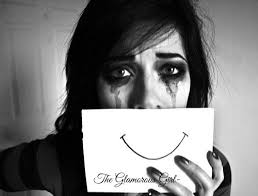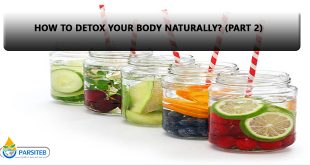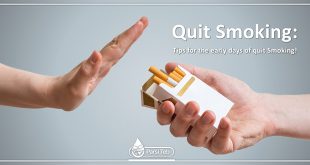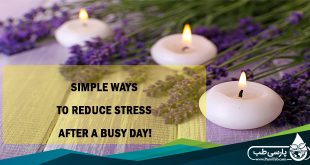What is depression?
Depression is a common and debilitating mood disorder that is affecting more and more people around the world. An estimated 350 million people of all ages experience symptoms of depression and about 13 percent of Americans take antidepressants—a figure that jumps to 25 percent for women in their 40s and 50s.
While some people describe depression as “living in a black hole” or having a feeling of impending doom, others feel lifeless, empty, and apathetic. Men in particular may even feel angry and restless. No matter how you experience it, depression is different from normal sadness in that it engulfs your day-to-day life, interfering with your ability to work, study, eat, sleep, and have fun.
When you are trapped in depression, it feels like nothing will ever change. But it’s important to remember that feelings of helplessness and hopelessness are symptoms of depression—not the reality of your situation. Now, in this article we will explain several important ways for depression treatment.

Depression recovery
When you are depressed, it can feel like there is no light at the end of the tunnel. But the truth is that there are many things you can do to lift and stabilize your mood. The key is to start with a few small goals and slowly build from there, trying to do a little more each day. Feeling better takes time, but you can get there by making positive choices for yourself.
- Reach out to other people. Isolation fuels depression, so reach out to friends and loved ones, even if you feel like being alone or don’t want to be a burden to others. The simple act of talking to someone face to face about how you feel can be an enormous help. The person you talk to doesn’t have to be able to fix you. He or she just needs to be a good listener—someone who’ll listen attentively without being distracted or judging you.
- Get moving. When you are depressed, just getting out of bed can seem daunting, let alone exercising. But regular exercise can be as effective as antidepressant medication in countering the symptoms of depression. Take a short walk or put some music on and dance around. Start with small activities and build up from there.
- Eat a mood-boosting diet. Reduce your intake of foods that can adversely affect your mood, such as caffeine, alcohol, trans fats, sugar, and refined carbs. And increase mood-enhancing nutrients such as Omega-3 fatty acids.
- Find ways to engage again with the world. Spend some time in nature, care for a pet, volunteer, pick up a hobby you used to enjoy (or take up a new one). You won’t feel like it at first, but as you participate in the world again, you will start to feel better.
Seek professional help for depression treatment
If you are supported from family and friends and positive lifestyle changes are not enough, seek help from a mental health professional.
- Therapy can help you understand your depression and motivate you to take the action necessary to prevent it from coming back.
- Medication may be imperative if you’re feeling suicidal or violent. But while it can help relieve symptoms of depression in some people, it isn’t a cure and is not usually a long-term solution. It also comes with side effects and other drawbacks so it’s important to learn all the facts to make an informed decision.
Depression treatment tips:
- Learn as much as you can about your depression. It’s important to determine whether your depression symptoms are due to an underlying medical condition. If so, that condition will need to be treated first. The severity of your depression is also a factor. The more severe the depression, the more intensive the treatment you’re likely to need.
- It takes time to find the right treatment. It might take some trial and error to find the treatment and support that works best for you. For example, if you decide to pursue therapy it may take a few attempts to find a therapist that you really click with. Or you may try an antidepressant, only to find that you don’t need it if you take a daily half hour walk. Be open to change and a little experimentation.
- Don’t rely on medications alone. Although medication can relieve the symptoms of depression, it is not usually suitable for long-term use. Other treatments, including exercise and therapy, can be just as effective as medication, often even more so, but don’t come with unwanted side effects. If you do decide to try medication, remember that medication works best when you make healthy lifestyle changes as well.
- Get social support. The more you cultivate your social connections, the more protected you are from depression. If you are feeling stuck, don’t hesitate to talk to trusted family members or friends, or seek out new connections at a depression support group, for example. Asking for help is not a sign of weakness and it won’t mean you’re a burden to others. Often, the simple act of talking to someone face-to-face can be an enormous help.
- Treatment takes time and commitment. All of these depression treatments take time, and sometimes it might feel overwhelming or frustratingly slow. That is normal. Recovery usually has its ups and downs.
Lifestyle changes: An essential part of depression treatment
Lifestyle changes are simple but powerful tools in treating depression. Sometimes they might be all you need. Even if you need other treatment, lifestyle changes go a long way towards helping lift depression. And they can help keep depression at bay once you are feeling better.
Lifestyle changes that can treat depression
 Exercise. Regular exercise can be as effective at treating depression as medication. Not only does exercise boost serotonin, endorphins, and other feel-good brain chemicals, it triggers the growth of new brain cells and connections, just like antidepressants do. Best of all, you don’t have to train for a marathon in order to reap the benefits. Even a half-hour daily walk can make a big difference. For maximum results, aim for 30 to 60 minutes of aerobic activity on most days.
Exercise. Regular exercise can be as effective at treating depression as medication. Not only does exercise boost serotonin, endorphins, and other feel-good brain chemicals, it triggers the growth of new brain cells and connections, just like antidepressants do. Best of all, you don’t have to train for a marathon in order to reap the benefits. Even a half-hour daily walk can make a big difference. For maximum results, aim for 30 to 60 minutes of aerobic activity on most days.- Nutrition. Eating well is important for both your physical and mental health. Eating small, well-balanced meals throughout the day will help you keep your energy up and minimize mood swings. While you may be drawn to sugary foods for the quick boost they provide, complex carbohydrates are a better choice. They’ll get you going without the all-too-soon sugar crash.
- Sleep. Sleep has a strong effect on mood. When you don’t get enough sleep, your depression symptoms will be worse. Sleep deprivation exacerbates irritability, moodiness, sadness, and fatigue. Make sure you’re getting enough sleep each night. Very few people do well on less than seven hours a night. Aim for somewhere between seven to nine hours each night.
- Social support. Strong social networks reduce isolation, a key risk factor for depression. Keep in regular contact with friends and family, or consider joining a class or group. Volunteering is a wonderful way to get social support and help others while also helping yourself.
- Stress reduction. Make changes in your life to help manage and reduce stress. Too much stress exacerbates depression and puts you at risk for future depression. Take the aspects of your life that stress you out, such as work overload or unsupportive relationships, and find ways to minimize their impact.
Alternative and complementary depression treatment
Alternative and complementary treatments for depression may include vitamin and herbal supplements, acupuncture, and relaxation techniques, such as mindfulness meditation, yoga, or tai chi.
Vitamins and supplements for depression treatment
The jury is still out on how well herbal remedies, vitamins, or supplements work in treating depression. While many supplements are widely available over the counter, in many cases their efficacy has not been scientifically proven. If your depression symptoms are in part due to nutritional deficiency, you may benefit from vitamin supplements, but this should be on the advice of your healthcare professional.
If you decide to try natural and herbal supplements, remember that they can have side effects and drug or food interactions. For example, St. John’s Wort—a promising herb used for treatment of mild to moderate depression—can interfere with prescription drugs such as blood thinners, birth control pills, and prescription antidepressants. Make sure your doctor or therapist knows what you are taking.
Other alternative depression treatments
- Relaxation techniques. As well as helping to relieve symptoms of depression, relaxation techniques may also reduce stress and boost feelings of joy and well-being. Try yoga, deep breathing, progressive muscle relaxation, or meditation.
- Acupuncture. Acupuncture, the technique of using fine needles on specific points on the body for therapeutic purposes, is increasingly being investigated as a treatment for depression, with some research studies showing
- promising results. If you decide to try acupuncture, make sure that you find a licensed qualified professional.
Depression treatment in herbal medicine
It is suggested to use “Paprika 9” and “psycho digest” in order to treat depression and be relax. They are herbal distilled combinations which are able to affect on different levels of depression , Obsession and delusion. These herbal beverages do not have any side effects or chemical substances and they are an effective herbal medications in depression treatment.
References:
www.webmd.com
www.helpguide.org
 Parsi Teb Physical and Mental Health Journal
Parsi Teb Physical and Mental Health Journal 
 Exercise. Regular exercise can be as effective at treating depression as medication. Not only does exercise boost serotonin, endorphins, and other feel-good brain chemicals, it triggers the growth of new brain cells and connections, just like antidepressants do. Best of all, you don’t have to train for a marathon in order to reap the benefits. Even a half-hour daily walk can make a big difference. For maximum results, aim for 30 to 60 minutes of aerobic activity on most days.
Exercise. Regular exercise can be as effective at treating depression as medication. Not only does exercise boost serotonin, endorphins, and other feel-good brain chemicals, it triggers the growth of new brain cells and connections, just like antidepressants do. Best of all, you don’t have to train for a marathon in order to reap the benefits. Even a half-hour daily walk can make a big difference. For maximum results, aim for 30 to 60 minutes of aerobic activity on most days.


